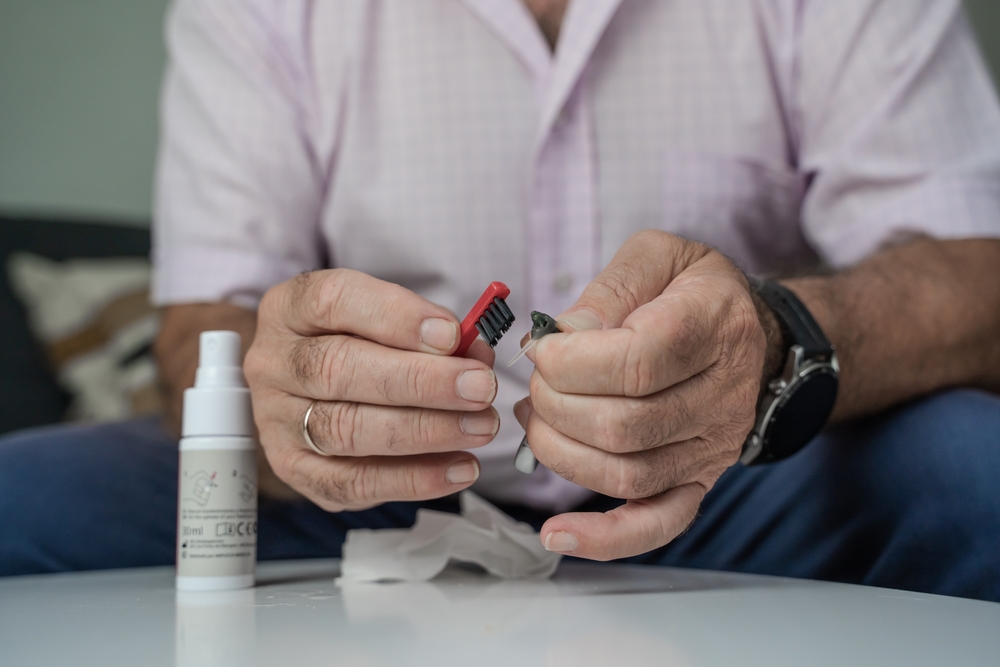Deciding to get fitted for hearing aids can be a life-changing choice, and many people wonder, “Is it enough to wear just one hearing aid?” This article explores the considerations for whether you should opt for one or two hearing aids based on your unique hearing needs.
Differentiating between temporary and permanent hearing loss
The first step in determining your hearing aid requirements is understanding whether your hearing loss is temporary or permanent. A qualified hearing care professional can provide a thorough evaluation to help identify the nature of your hearing loss. Certain conditions may suggest that your hearing issues are only temporary, such as:
- Earwax Buildup: This common issue can often be effectively removed in a clinical environment, restoring your hearing.
- Illness: Conditions like head colds or ear infections can lead to temporary hearing loss that may resolve with treatment.
- Noise Exposure: Temporary hearing loss can also result from exposure to loud sounds; however, if your hearing does not return within a few hours, it is crucial to seek professional help.
If your hearing loss is determined to be temporary, your healthcare provider can suggest effective treatments or lifestyle changes. Conversely, if your hearing loss is diagnosed as permanent, it’s time to consider the options available for hearing aids. The next question arises: should you choose one or two hearing aids?
The advantages of choosing two hearing aids
While some individuals may attempt to save costs by purchasing a single hearing aid, particularly when one ear is perceived to be stronger, opting for two hearing aids is often the most beneficial choice. Here are several reasons to consider investing in a pair of hearing aids:
- Enhanced Sound Clarity: Two hearing aids improve sound clarity, helping you to discern voices and sounds more distinctly.
- Auditory Processing: Having two aids allows your brain to better differentiate between relevant sounds and background noise, leading to improved comprehension in various listening environments.
- Sound Localization: Two hearing aids aid in pinpointing the source of sounds, allowing you to respond more effectively to conversations and environmental cues.
- Balanced Auditory Input: By using two hearing aids, the auditory signals received are balanced, reducing the risk of auditory fatigue.
- Tinnitus Management: Utilizing two hearing aids may reduce the likelihood of developing tinnitus, which can be exacerbated by hearing loss.
- Preventing Auditory Deprivation: Treating hearing loss in both ears can help prevent further deterioration of hearing abilities.
If you experience hearing loss in both ears, treating each ear with a hearing aid is generally recommended for optimal auditory health.
When to consider using only one hearing aid
There are specific scenarios in which using a single hearing aid may be the best option. Here are the primary reasons:
- Single-Sided Hearing Loss: If you experience unilateral hearing loss—meaning one ear hears well while the other struggles—there’s no need for a second hearing aid.
- Permanent Deafness in One Ear: Individuals who are completely deaf in one ear would not benefit from a second hearing aid.
- Cognitive Challenges: For older adults, particularly those over 85 with cognitive impairments, wearing two hearing aids may create confusion or sensory overload, making it hard to separate speech from background noise.
Additionally, if finances are a significant barrier, you may need to start with just one hearing aid. It’s essential to explore all potential avenues for financial assistance, such as insurance coverage or payment plans, before making a final decision.
Explore best options with a hearing specialist
Ultimately, while it may be tempting to opt for a single hearing aid to cut costs, investing in a pair often leads to a more comprehensive and satisfying hearing experience.
Find a hearing specialist near you to explore options best for your hearing loss.



